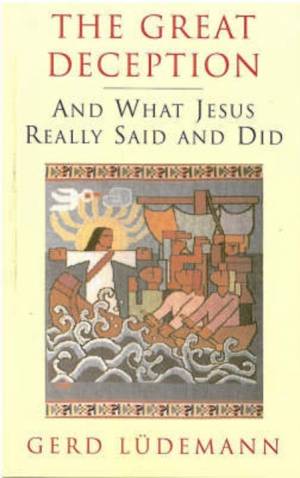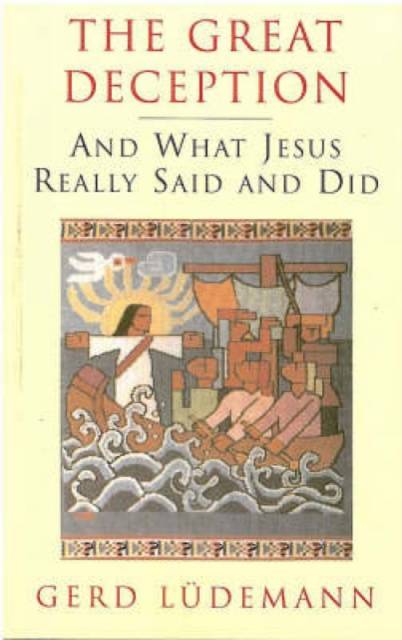
- Retrait gratuit dans votre magasin Club
- 7.000.000 titres dans notre catalogue
- Payer en toute sécurité
- Toujours un magasin près de chez vous
- Retrait gratuit dans votre magasin Club
- 7.000.0000 titres dans notre catalogue
- Payer en toute sécurité
- Toujours un magasin près de chez vous
23,95 €
+ 47 points
Description
It is widely recognized by New Testament scholars that many of the sayings and actions attributed to Jesus in the Gospels do not go back to him, but to a considerable degree have been influenced, or even constructed, by the early church. HOwever, on the whole they have taken a comparatively relaxed attitude towards this discovery, by bringing the 'Jesus of history' close to the 'Christ of faith' or by seeing the New Testament canon as it now exists as the basis for Christian belief. Gerd Lüdemann is keenly aware of the dangers which go with this kind of approach and calls for a more rigorous treatment of the Gospels. In clear, straightforward language he first gives the criteria by which he believes it possible to distinguish inauthentic from authentic sayings and actions of Jesus, and then shows which sayings and actions can be regarded as authentic and which cannot. His radical conclusion is that the Jesus thus discovered cannot support the traditional Christian faith. The Jesus who remains is a deeply sympathetic personality and one of the great religious figures of the world, but it is no longer possible for Christianity honesty to appeal to him without being an accomplice in a 'great deception'. Gerd Lüdemann is Professor of History and Literature of Early Christianity Emeritus in the University of Göttingen, Germany.
Spécifications
Parties prenantes
- Auteur(s) :
- Traducteur(s):
- Editeur:
Contenu
- Nombre de pages :
- 128
- Langue:
- Anglais
Caractéristiques
- EAN:
- 9780334027478
- Date de parution :
- 17-06-10
- Format:
- Livre broché
- Format numérique:
- Trade paperback (VS)
- Dimensions :
- 140 mm x 216 mm
- Poids :
- 154 g

Les avis
Nous publions uniquement les avis qui respectent les conditions requises. Consultez nos conditions pour les avis.






